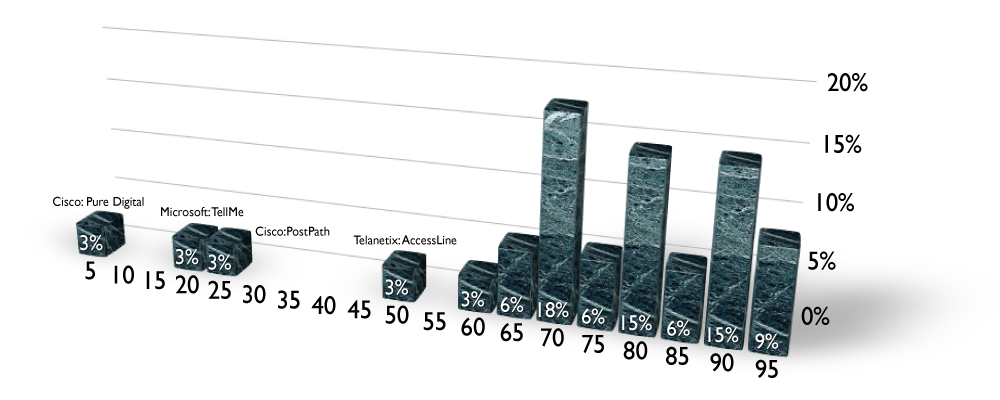 On Monday July 9, 2007, Google announced its plan to acquire hosted processor Postini for $635 million.
On Monday July 9, 2007, Google announced its plan to acquire hosted processor Postini for $635 million.
This deal score report reviews the fit for these organizations and considers the implications in four key areas – strategic fit, timing, customer demand and potential.
— Here's the Deal Score: —
Strategic fit [5/5].
Eric Schmidt, Chairman and CEO of Google says that
with this transaction, we're reinforcing our commitment to delivering compelling hosted applications to businesses of all sizes. With the addition of Postini, our apps are not just simple and appealing to users — they can also streamline the complex information security mandates within these organizations
Google is building a portfolio of hosted applications for email, calendar, voip, docs and spreadsheets and is marketing them to businesses. Postini's offering brings a layer of security functionality – security in email, IM, URL, archiving and privacy.
Timing [4/5].
This deal adds momentum across Google's hosted offering by enabling a layer of security, history and for premium services. The press release emphasized that Google was gaining 1,000 small business customers a day. The logic is that the more sophisticated requirements of medium or large enterprises for email archival, privacy and web management can be met in a hosted Google Apps with Postini environment. In this way, Google hopes to kick start their hosted offering for larger enterprises.
Customer demand [2/5].
Enterprise customers prefer flexibility and choices. The opportunity for hosted services for enterprises are very different than for small business. Small businesses need hosted services because it offloads their thin operational staffs with non-essential but required services. Many small organizations appreciate the power and low operating costs of hosted services.
On the other hand, large enterprises have very different investments and scales. Merely deploying an application takes scale and resources that are often less costly when implemented in-house. That's why IT organizations of large enterprises have substantial investment in talent, equipment and software expertise, are organized with specialized functions and long standing relationships with vendors and systems integrators. The cost, control, security and performance goals of enterprise often means that they must own as much of the infrastructure and environment as possible.
Hosted services tend to be attractive to smaller organizations and some verticals where the burden of ownership exceeds the benefits of control. For example, higher education and government are two verticals generally keen on hosted services.
Potential [1/5].
Despite the hype, this deal will not significantly drive Google's success into larger enterprise. It does create a powerful offering for higher education and government, which are an excellent starting point for sophisticated secure, hosted services.
Overall, Google needs alternative packaging such as the power of appliances or Hardware-as-a-Service
to complement their hosted service offering.
Total Score: 12/20 = 60% B grade.










